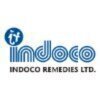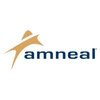Assistant Manager QC
10+ Assistant Manager QC Interview Questions and Answers

Asked in Ramky Infrastructure

Q. What are the details of Documentation, and can you explain them briefly?
Documentation refers to the process of recording and organizing information in a systematic manner.
Documentation involves creating and maintaining written records of processes, procedures, and policies.
It includes capturing and storing data, such as test results, reports, and specifications.
Documentation ensures traceability and provides a reference for future use.
It helps in maintaining quality standards, compliance, and continuous improvement.
Examples of documentation inclu...read more
Asked in A.VENKATESH

Q. What are the differences between Grade A, Grade B, and Grade C?
Grade A, B, and C refer to classifications of cleanroom environments based on cleanliness and contamination control standards.
Grade A: Highest cleanliness level, used for critical processes like aseptic filling.
Grade B: Suitable for less critical processes, maintaining a controlled environment.
Grade C: Lower cleanliness standard, often used for non-sterile manufacturing.

Asked in Ramky Infrastructure

Q. What are the differences between FE 500 and FE 500D steel?
FE 500 and FE 500D are both types of steel used in construction, but they have different properties.
FE 500 has a minimum yield strength of 500 N/mm², while FE 500D has a minimum yield strength of 500 N/mm² with higher elongation.
FE 500D is more ductile and has better seismic resistance compared to FE 500.
FE 500D is recommended for areas prone to earthquakes or seismic activities.
FE 500D steel has a higher percentage of carbon compared to FE 500, which contributes to its enhan...read more
Asked in A.VENKATESH

Q. Why can we use ferrous material for heavy fabrication work?
Ferrous materials like heavy fabrication work are used due to their strength and durability.
Ferrous materials like steel and iron are strong and durable, making them ideal for heavy fabrication work.
They can withstand high temperatures and pressure, making them suitable for use in boilers, pressure vessels, and pipelines.
Ferrous materials are also magnetic, which makes them useful in electrical applications.
However, they are prone to rust and corrosion, so proper maintenance ...read more

Asked in Indoco Remedies

Q. Are there any guidelines that help us with instrument qualification techniques?
Yes, there are guidelines available for instrument qualification techniques.
The International Conference on Harmonisation (ICH) provides guidelines for instrument qualification.
The United States Pharmacopeia (USP) also has guidelines for instrument qualification.
The European Medicines Agency (EMA) provides guidelines for instrument qualification.
Instrument manufacturers may also provide guidelines for instrument qualification.
Qualification should include installation qualific...read more
Asked in A.VENKATESH

Q. What are ferrous and non-ferrous materials?
Ferrous materials contain iron while non-ferrous materials do not.
Ferrous materials are magnetic while non-ferrous materials are not.
Examples of ferrous materials include steel and cast iron.
Examples of non-ferrous materials include aluminum, copper, and brass.
Assistant Manager QC Jobs



Asked in A.VENKATESH

Q. How many classes of materials are there?
There are various types and classes of materials used in manufacturing.
Materials can be classified based on their composition, properties, and intended use.
Common types of materials include metals, plastics, ceramics, and composites.
Classes of materials can include raw materials, intermediate materials, and finished products.
Materials can also be classified based on their quality and performance standards.
Examples of material classes include food-grade materials, medical-grad...read more

Asked in Indoco Remedies

Q. What is your understanding of CFR Part 11?
CFR part 11 is a regulation by the FDA that defines the criteria for electronic records and signatures.
CFR part 11 applies to electronic records and signatures used in FDA-regulated industries such as pharmaceuticals, medical devices, and biotech
It outlines the requirements for electronic records to be trustworthy, reliable, and secure
It also defines the criteria for electronic signatures to be legally binding and equivalent to handwritten signatures
Examples of electronic rec...read more
Share interview questions and help millions of jobseekers 🌟


Asked in Axio Biosolutions

Q. What types of sterilization methods are used for medical devices?
The most common types of sterilization for medical devices include steam sterilization, ethylene oxide sterilization, and gamma radiation sterilization.
Steam sterilization: Uses high temperature steam to kill microorganisms. Commonly used for heat-resistant medical devices.
Ethylene oxide sterilization: Uses gas to kill microorganisms. Ideal for heat-sensitive devices like plastic or electronic components.
Gamma radiation sterilization: Uses high-energy gamma rays to kill micro...read more

Asked in JUD Cement

Q. What is the C3A value of clinker?
C3A value of clinker refers to the amount of tricalcium aluminate present in the clinker.
C3A is a chemical formula for tricalcium aluminate
It is one of the main components of cement
The ideal range of C3A value in clinker is between 8-10%
High C3A content can lead to rapid setting of cement and cause cracking
Low C3A content can result in delayed setting and reduced strength

Asked in Axio Biosolutions

Q. Ethylene oxide method
Ethylene oxide method is a sterilization process commonly used in healthcare settings.
Ethylene oxide gas is used to sterilize medical equipment and supplies that cannot be sterilized by steam, such as plastic or heat-sensitive items.
The process involves exposing the items to ethylene oxide gas in a sealed chamber for a specific amount of time to kill bacteria, viruses, and other microorganisms.
After the sterilization process is complete, the items must undergo aeration to rem...read more

Asked in Welspun Enterprises

Q. Designs of job mix
Job mix designs optimize resource allocation and workflow in quality control processes for efficiency and effectiveness.
Define job roles clearly to avoid overlap and ensure accountability.
Use a mix of full-time and part-time staff to balance workload and flexibility.
Implement cross-training to enhance team versatility and coverage.
Utilize technology for data collection and analysis to streamline processes.
Example: In a QC lab, assign specific tests to specialized staff while ...read more
Interview Experiences of Popular Companies








Reviews
Interviews
Salaries
Users

















